ASSESSMENT & CASE CONSULTATION

Finding help for your loved one can be extremely challenging. There are countless options, which can make the selection process difficult to navigate.
Our Assessment and Case Consultation service is ideal for providing clarity and guidance with this decision. Post Treatment Services can be an integral part of a treatment team from planning an intervention to long-term aftercare coordination. We collaborate with your clinicians to develop treatment goals with the client’s objectives in mind. Our holistic approach allows us to make sure that the client’s primary clinicians are in charge, informed, and involved in every step of the process.
We are confident that with your goals and our broad network of professionals, we will guide you and your loved one towards a plan that’s individually curated for the best possible outcome.
CLINICAL CARE MANAGEMENT

Our Care Managers are capable of overseeing an entire case, from start to finish, through the lens of whole person wellness. This may include coordinating with already established team members or locating suitable interventionists, treatment facilities, recovery companions, therapists, and any other services the client or family may require throughout their process.
Our Care Managers ensure that client care is integrated across the clinical spectrum with a focus on wrap around services to make sure nothing falls through the cracks.
We support the clinical team to ensure that the client remains on track with their daily routines, which in turn, helps the client weather emotional and logistical challenges as they present themselves.
While every client may not require care management services, every client would benefit from having a Care Manager they can trust as part of their ongoing care team. Care Management is a concierge service that provides on-call, 24/7 support for our client’s needs.
COMPANION, COACH, MENTORSHIP

Recovery Companions, Coaches and Mentors provide support for the client during some of their most challenging transitions. They can help ease the transition into and out of treatment, which can provide an individual with increased chances for success at long-term recovery from chemical dependency and/ or mental illness. This support allows our clients to establish healthy routines while reintegrating into the community — change proven to result in long term success.
Companion support is also available for transports and many different kinds of events, such as weddings, funerals or court dates. Any of these transitions or events can range from short-term to long-term timelines.
In order to maintain the highest level of safety and accountability Post Treatment Services require daily clinical oversight and guidance for every companion, coach or mentor who works with our clients to assure their goals are met with efficiency and integrity.
INTERVENTION

Historically it was believed that someone suffering from substance use disorder needed to hit “Rock Bottom” before they would be willing to get the help they needed to recover. The unfortunate reality is that far too many people don’t reach that bottom before experiencing destructive consequences from their active disease. We now know that we can potentially move that bottom to meet them before many of those consequences become a reality.
We know how difficult it can be to watch a loved one in pain. A skilled interventionist can help strategize with a client’s loved ones or other concerned people to create the opportunity for them to say yes to the help they need. At Post Treatment Services our clinicians have decades of combined experience utilizing the many intervention techniques available to fit each individual client’s needs.
Our ultimate goal is to get your loved one safely and effectively to treatment while supporting the family or client team throughout that process.
MONITORING

Monitoring is an excellent tool for clients, their loved ones and other team members to support the clients sustained abstinence. Monitoring via regular drug screens or use of Soberlink, serves to both detect and deter alcohol and/or other drug use. Detecting a relapse early in real time allows the treatment team an opportunity to step in and intervene as needed. This level of ongoing assistance and involvement can make all the difference in avoiding a full-blown relapse.
Many clients, initially resistant to monitoring, reported that it served as a helpful deterrent, holding them accountable to their recovery. Knowing they were going to be tested helped them to resist temptation to act on impulse, allowing them an opportunity to make a different choice.
Early recovery can be challenging for the significant others, not just the recovering individual. Having a comprehensive monitoring plan in place can take the pressure of being hyper alert off the client’s loved ones. Monitoring can provide them some peace of mind and an opportunity to have a different dynamic with their loved one.
